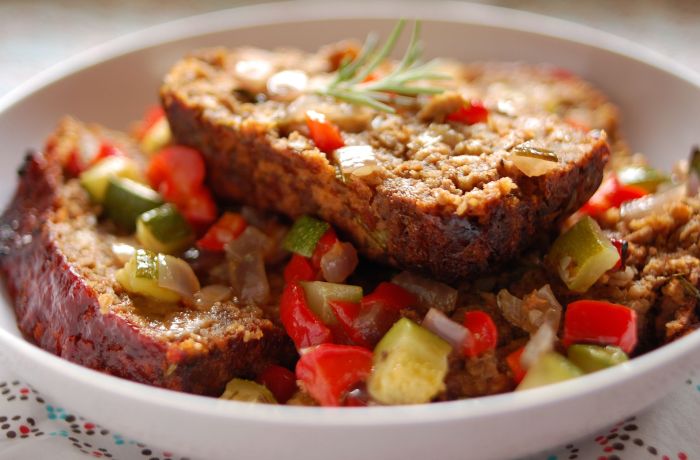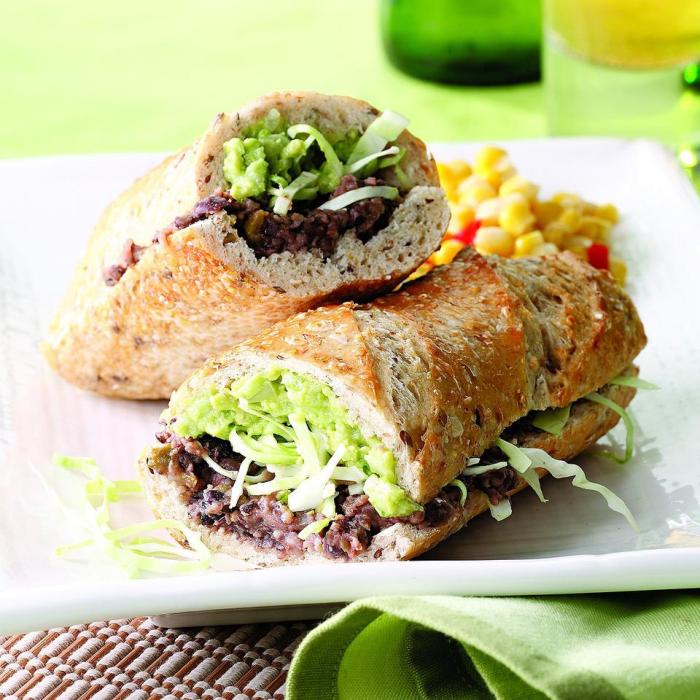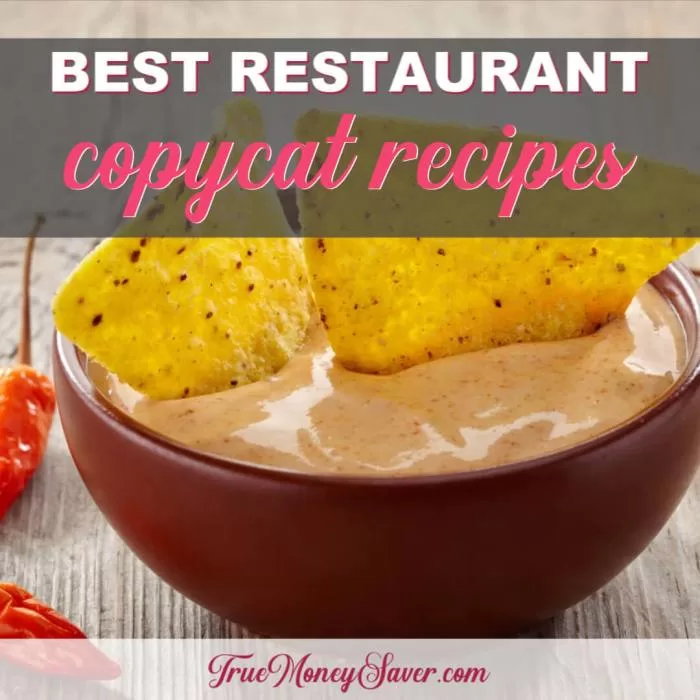Vegan Recipes: Embark on a culinary journey that celebrates the diversity and deliciousness of plant-based cuisine. Discover the secrets of vegan cooking, explore a world of flavorful substitutions, and indulge in a delectable array of vegan dishes.
From mastering the basics of vegan cooking to navigating the complexities of vegan baking, this guide will equip you with the knowledge and inspiration to create mouthwatering vegan meals that nourish both your body and soul.
Vegan Cooking Basics
Vegan cooking adheres to a plant-based philosophy, excluding all animal products. It involves mastering techniques that substitute non-vegan ingredients with plant-based alternatives, while ensuring balanced nutrition and flavor profiles.
Essential Ingredients and Pantry Staples
Vegan cooking relies on a range of whole, unprocessed plant foods. Key ingredients include:
- Fruits and vegetables: Provide essential vitamins, minerals, and antioxidants.
- Legumes: Rich in protein, fiber, and iron, including beans, lentils, and chickpeas.
- Whole grains: Complex carbohydrates and fiber, such as brown rice, quinoa, and oats.
- Nuts and seeds: Healthy fats, protein, and fiber, including almonds, walnuts, and chia seeds.
- Plant-based milks: Calcium and vitamin D sources, such as almond milk, soy milk, and oat milk.
Transitioning to a Vegan Diet
Transitioning to a vegan diet requires gradual changes and careful planning:
- Start by incorporating more plant-based foods into meals.
- Explore vegan substitutes for favorite non-vegan dishes.
- Read food labels thoroughly to identify hidden animal ingredients.
- Consult with a healthcare professional or registered dietitian for personalized guidance.
Navigating Food Labels
Food labels are crucial for vegans. Look for:
- “Vegan” or “Plant-Based” certifications.
- Absence of animal-derived ingredients, such as dairy, eggs, and meat.
- Hidden ingredients like casein, whey, and gelatin.
Plant-Based Substitutions: Vegan Recipes
Adopting a vegan diet necessitates the identification of suitable plant-based alternatives for commonly used animal-based ingredients. These substitutes provide a means to maintain familiar flavors and textures while adhering to ethical and environmental considerations.
Vegan recipes offer a diverse range of plant-based dishes that cater to individuals seeking healthy and ethical food options. However, for those with gluten sensitivities or celiac disease, finding gluten-free vegan recipes can be challenging. To address this need, resources such as Gluten-free recipes provide a comprehensive collection of recipes that meet both dietary restrictions.
By incorporating these gluten-free options into their culinary repertoire, vegans can enjoy a wider variety of nutritious and satisfying meals.
The nutritional value of plant-based substitutes varies depending on the specific ingredient and its vegan counterpart. However, many plant-based options offer comparable or even superior nutritional profiles, providing essential vitamins, minerals, and fiber.
Dairy Substitutes
- Milk: Soy milk, almond milk, oat milk, cashew milk
- Yogurt: Soy yogurt, coconut yogurt, cashew yogurt
- Cheese: Nutritional yeast, cashew cheese, almond cheese
- Butter: Vegan butter (made from plant-based oils), avocado oil
Meat Substitutes
- Ground beef: Textured vegetable protein (TVP), lentils, black beans
- Chicken: Tofu, tempeh, seitan
- Fish: Seaweed, jackfruit, tofu
- Eggs: Flaxseed meal, chia seeds, silken tofu
Other Substitutes
- Honey: Maple syrup, agave nectar, date syrup
- Gelatin: Agar-agar, chia seeds
- Worcestershire sauce: Mushroom sauce, soy sauce, coconut aminos
Vegan Meal Planning
Vegan meal planning involves designing a balanced and varied diet that meets the nutritional needs of individuals following a vegan lifestyle. It encompasses selecting and combining plant-based foods to ensure adequate intake of essential nutrients, such as protein, iron, calcium, and vitamin B12.
Sample Vegan Meal Plan
Here is a sample vegan meal plan for a week, providing approximately 2,000 calories per day:
- Breakfast
- Monday: Oatmeal with berries and nuts
- Tuesday: Tofu scramble with vegetables
- Wednesday: Smoothie made with fruits, vegetables, and plant-based milk
- Thursday: Whole-wheat toast with avocado and hummus
- Friday: Vegan breakfast burrito with beans, vegetables, and salsa
- Saturday: Pancakes made with whole-wheat flour and topped with fruit
- Sunday: Waffles with fruit compote and vegan butter
- Lunch
- Monday: Salad with grilled tofu, quinoa, and vegetables
- Tuesday: Lentil soup with whole-wheat bread
- Wednesday: Vegan sandwich on whole-wheat bread with hummus, vegetables, and sprouts
- Thursday: Leftovers from dinner
- Friday: Falafel wrap with hummus and vegetables
- Saturday: Vegan chili with cornbread
- Sunday: Pasta salad with vegetables and vegan pesto
- Dinner
- Monday: Vegan stir-fry with tofu, vegetables, and brown rice
- Tuesday: Lentil tacos with whole-wheat tortillas
- Wednesday: Vegan shepherd’s pie with mashed potatoes
- Thursday: Roasted vegetables with quinoa
- Friday: Vegan pizza with whole-wheat crust
- Saturday: Vegan burgers with sweet potato fries
- Sunday: Vegan lasagna with whole-wheat noodles
- Snacks
- Fruits (e.g., apples, bananas, berries)
- Vegetables (e.g., carrots, celery, cucumbers)
- Nuts and seeds
- Hummus with whole-wheat pita
- Vegan yogurt with berries
- Trail mix
- Smoothies
Ensuring Nutritional Adequacy and Variety
To ensure nutritional adequacy in a vegan diet, it is crucial to include a wide variety of plant-based foods from all food groups:
- Fruits and vegetables: Provide vitamins, minerals, antioxidants, and fiber.
- Whole grains: Offer complex carbohydrates, fiber, and B vitamins.
- Legumes (beans, lentils, peas): Excellent sources of protein, fiber, and iron.
- Nuts and seeds: Rich in protein, healthy fats, and minerals.
- Plant-based milk and yogurt: Fortified with calcium, vitamin D, and vitamin B12.
Supplementation may be necessary for certain nutrients, such as vitamin B12, which is primarily found in animal products.
Tips for Meal Prepping and Cooking Efficiently
- Plan meals ahead: This helps avoid last-minute unhealthy choices.
- Cook in bulk: Prepare larger portions of meals to save time throughout the week.
- Utilize kitchen appliances: Slow cookers, pressure cookers, and food processors can streamline cooking.
- Freeze leftovers: Extend the shelf life of meals and have quick options on hand.
- Involve family or friends: Share cooking tasks to reduce workload.
Popular Vegan Recipes

Vegan cuisine offers a wide array of delectable dishes that cater to diverse tastes and preferences. These recipes, crafted with plant-based ingredients, not only provide nourishment but also showcase the versatility and creativity of vegan cooking.
To guide your culinary adventures, we present a curated selection of popular vegan recipes organized by category, complete with step-by-step instructions and visually appealing food photography.
Appetizers
Kickstart your vegan feast with an array of tantalizing appetizers that will whet your appetite and set the tone for a satisfying meal.
- Caprese Skewers: Fresh mozzarella, juicy tomatoes, and aromatic basil drizzled with olive oil, impaled on skewers for an elegant and flavorful treat.
- Vegan Bruschetta: Toasted bread topped with a vibrant medley of diced tomatoes, onions, garlic, and fresh herbs, seasoned with a drizzle of balsamic glaze.
- Spring Rolls: Delicate rice paper wrappers filled with a crunchy filling of vegetables such as carrots, bell peppers, and cabbage, served with a flavorful dipping sauce.
Main Courses
Indulge in a symphony of flavors with our selection of vegan main courses that will satisfy your hunger and tantalize your taste buds.
- Vegan Shepherd’s Pie: A hearty and comforting dish featuring a savory lentil and vegetable filling topped with a creamy mashed potato crust.
- Chickpea Curry: Aromatic spices blend harmoniously with tender chickpeas in a creamy coconut milk sauce, creating a flavorful and satisfying curry.
- Portobello Mushroom Steaks: Grilled portobello mushrooms marinated in a flavorful blend of herbs and spices, served with a tangy chimichurri sauce.
Desserts
Conclude your vegan culinary journey with a delightful array of desserts that will gratify your sweet tooth without compromising your dietary choices.
- Vegan Chocolate Cake: A decadent and indulgent chocolate cake made with rich cocoa powder and plant-based milk, topped with a luscious chocolate ganache.
- Apple Crumble: Warm and comforting, featuring a sweet and juicy apple filling topped with a crunchy oat crumble.
- Mango Sorbet: A refreshing and tropical treat, made with ripe mangoes blended until smooth and frozen for a delightful icy dessert.
Vegan Baking and Desserts

Vegan baking presents unique challenges due to the absence of traditional ingredients like eggs, dairy, and butter. However, with careful technique and the use of plant-based alternatives, delectable vegan desserts can be created.
In vegan baking, binding agents such as flax eggs (ground flaxseed mixed with water) and chia seeds replace eggs. Plant-based milks (almond, soy, oat) substitute dairy, while vegan butter or coconut oil provides richness. Sweeteners like maple syrup, agave nectar, and coconut sugar offer natural alternatives to refined sugars.
Vegan recipes have gained popularity due to their health benefits and ethical considerations. They offer a wide range of options for those seeking nutritious and plant-based meals. To cater to the growing demand for quick and convenient vegan options, many websites and blogs provide collections of quick and tasty recipes . These recipes are designed to minimize cooking time while maximizing flavor and nutrition.
By integrating vegan principles with the convenience of fast preparation, these recipes make it easier for individuals to adopt a vegan lifestyle or incorporate more plant-based meals into their diets.
Classic Vegan Desserts, Vegan recipes
- Vegan Chocolate Cake: This decadent cake uses a combination of cocoa powder, almond milk, and flax eggs to create a moist and flavorful sponge. Vegan chocolate chips add a rich, gooey texture.
- Vegan Sugar Cookies: These classic cookies are made with a blend of plant-based butter, sugar, and vanilla extract. Cornstarch and almond flour create a crumbly, melt-in-your-mouth texture.
- Vegan Apple Pie: This comforting dessert features a flaky vegan crust filled with tender apples, cinnamon, and nutmeg. A sprinkle of oats adds a crunchy topping.
Vegan Cooking Around the World
Vegan cooking is not just a trend; it’s a way of life that’s been practiced for centuries in various cultures around the world. From the vibrant flavors of India to the hearty stews of Ethiopia, plant-based cuisines offer a diverse range of culinary experiences.
Adapting traditional dishes to a vegan diet allows us to enjoy the cultural significance and health benefits of these cuisines while promoting sustainability and animal welfare.
Indian Cuisine
Indian cuisine is renowned for its aromatic spices and flavorful curries. Vegan versions of classic dishes like chana masala (chickpea curry) and dal makhani (black lentil curry) are equally satisfying, providing a rich source of plant-based protein and fiber.
Example Recipe: Vegan Chana Masala
- Sauté onions, garlic, and ginger in a large pot.
- Add chickpeas, diced tomatoes, and a blend of Indian spices (e.g., turmeric, cumin, coriander).
- Simmer until the chickpeas are tender and the sauce has thickened.
- Serve over basmati rice or with vegan naan bread.
Ethiopian Cuisine
Ethiopian cuisine is characterized by its unique blend of spices and the use of injera, a fermented flatbread. Vegan dishes like misir wot (red lentil stew) and shiro (chickpea flour stew) are hearty and flavorful, providing a complete source of protein and fiber.
Example Recipe: Vegan Misir Wot
- Sauté onions and garlic in a large pot.
- Add red lentils, diced tomatoes, and a blend of Ethiopian spices (e.g., berbere, fenugreek, cumin).
- Simmer until the lentils are tender and the sauce has thickened.
- Serve over injera and accompany with vegan sides like gomen (collard greens) and atkilt (cabbage salad).
Health Benefits of Vegan Cuisines
In addition to their cultural significance, vegan cuisines offer numerous health benefits:
- Reduced risk of chronic diseases: Plant-based diets are rich in antioxidants, fiber, and other protective compounds that may reduce the risk of heart disease, type 2 diabetes, and certain cancers.
- Improved digestion: Vegan cuisines often emphasize whole grains, fruits, and vegetables, which promote a healthy gut microbiome and support digestive health.
- Lower environmental impact: Plant-based diets have a significantly lower environmental impact than diets that include animal products.
Ending Remarks
Whether you’re a seasoned vegan or simply curious about exploring plant-based options, Vegan Recipes offers a wealth of information and inspiration to guide you on your culinary adventure. Embrace the transformative power of vegan cooking and discover the joy of creating delicious and nutritious meals that are both ethical and sustainable.
Question & Answer Hub
What are the key principles of vegan cooking?
Vegan cooking focuses on using plant-based ingredients to create delicious and nutritious meals. It excludes all animal products, including meat, dairy, eggs, and honey.
How can I transition to a vegan diet?
Transitioning to a vegan diet can be gradual. Start by incorporating more plant-based foods into your meals, and gradually reduce your consumption of animal products.
What are some common vegan substitutes for animal-based ingredients?
There are many vegan alternatives to animal-based ingredients. For example, tofu can be used as a substitute for meat, and plant-based milk can be used instead of dairy milk.

